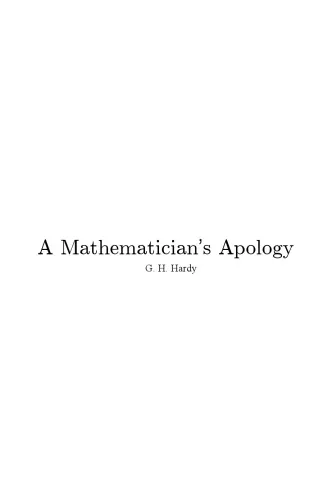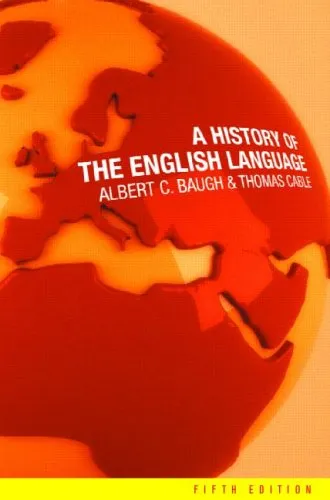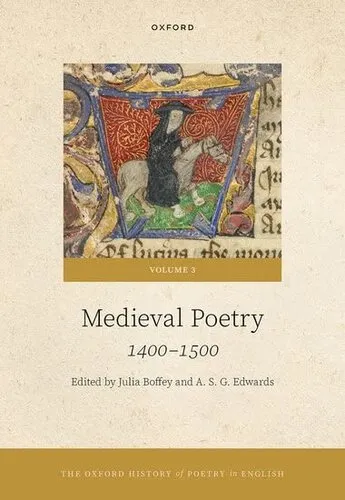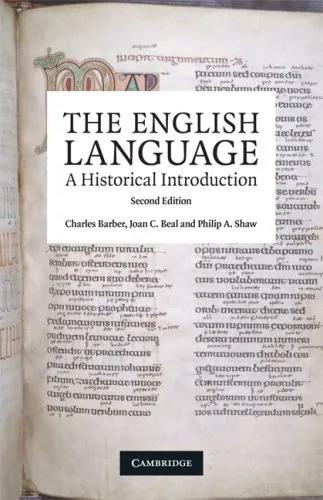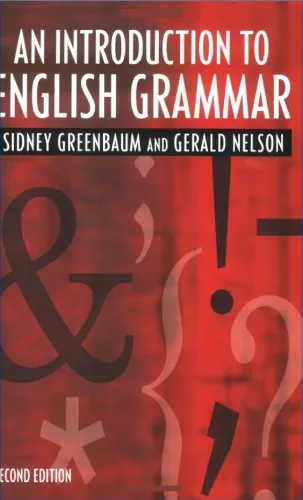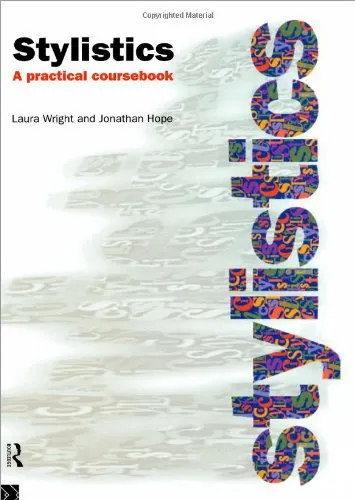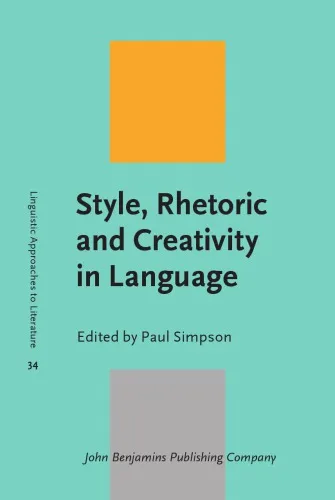A Mathematician’s Apology
4.5
بر اساس نظر کاربران

شما میتونید سوالاتتون در باره کتاب رو از هوش مصنوعیش بعد از ورود بپرسید
هر دانلود یا پرسش از هوش مصنوعی 2 امتیاز لازم دارد، برای بدست آوردن امتیاز رایگان، به صفحه ی راهنمای امتیازات سر بزنید و یک سری کار ارزشمند انجام بدینکتاب های مرتبط:
خلاصه تحلیلی کتاب
کتاب A Mathematic’s Apology اثری کلاسیک از ریاضیدان برجسته قرن بیستم، Godfrey H. Hardy، است که بهطور خستگیناپذیر تلاش میکند تصویر واقعی یک ریاضیدان خلاق را ترسیم کند. این کتاب مانند یک یادداشت شخصی و فلسفی، دغدغههای فکری و زیباییشناسانه نویسنده را در باب ریاضیات آشکار میسازد و روایتی انسانی از علمی ارائه میدهد که غالباً خشک و انتزاعی تلقی میشود.
Hardy در این اثر، به ماهیت ریاضیات ناب، تفاوت آن با ریاضیات کاربردی و اهمیت خلاقیت و نوآوری در این رشته میپردازد. با نثری روان و همراه با مثالهای دقیق، خواننده را به فضای ذهنی یک ریاضیدان دعوت میکند. این کتاب نه تنها برای علاقهمندان به علم و فلسفه، بلکه برای هر کسی که به دنبال کشف زیبایی در منطق و نظم است، جذابیت دارد.
نکات کلیدی و کاربردی
از مهمترین نکات کتاب میتوان به دیدگاه Hardy نسبت به ریاضیات بهعنوان یک هنر زیبا اشاره کرد؛ هنری که ارزش آن نه در کاربردهای عملی بلکه در ساختارهای ذهنی و زیبایی بینقص آن نهفته است.
او بارها تأکید میکند که ریاضیات ناب همانند ادبیات یا موسیقی، محصول ذهنی است که ابتدا خلاقانه خلق میشود و سپس مورد تأیید جامعه علمی قرار میگیرد. این دیدگاه برای اندیشمندان حوزه فلسفه ریاضیات، ارزش فراوانی دارد. همچنین، کتاب به پرسشهای بنیادینی درباره معنا و انگیزه یادگیری و پژوهش در علوم میپردازد.
نقلقولهای ماندگار
در طول کتاب، Hardy جملات و برداشتهایی ارائه میدهد که نگاه خواننده را به علم و زیبایی آن تغییر میدهند. این نقلقولها، عصاره اندیشههای او هستند.
ریاضیات، نهتنها ابزار، بلکه هنری است که نابترین ایدههای ذهن انسان را آشکار میکند. Godfrey H. Hardy
ارزش ریاضیات در زیبایی و ظرافت آن نهفته است، نه در سودآوری عملی آن. نامشخص
چرا این کتاب اهمیت دارد
در عصری که تمرکز اغلب بر کاربردهای عملی علوم است، کتاب A Mathematic’s Apology یادآور میشود که ارزش راستین علم فراتر از استفادههای فوری و تکنولوژیک آن است. اهمیت این اثر در برجستهسازی جنبههای هنری و فلسفی ریاضیات است؛ جنبههایی که اغلب نادیده گرفته میشوند.
Hardy با نگرشی هنری و فلسفی، راهی برای فهم عمیقتر ریاضیات باز میکند. او تجربه شخصی خود را در قالبی عمومی بیان میکند تا نه تنها ریاضیدانان، بلکه پژوهشگران ادبیات، هنر و فلسفه نیز بتوانند به آن پیوند بخورند.
نتیجهگیری الهامبخش
کتاب A Mathematic’s Apology نهتنها اثری ارزشمند در حوزه فلسفه ریاضیات، بلکه دعوتی صمیمانه برای درک زیبایی فکری بشر است. مطالعه این کتاب، ذهن را به سمت نگرشی عمیقتر نسبت به علم سوق میدهد و توضیح میدهد که چرا حتی در دنیای کاربردگرای امروز، تجلیل از ریاضیات ناب ضروری است.
اگر به دنبال تجربهای فکری هستید که هم الهامبخش باشد و هم افقهای جدیدی در فهم علم برایتان بگشاید، این اثر را بخوانید و آن را با دیگران به اشتراک بگذارید. قدرت آن در برانگیختن گفتوگو و تأمل، همان چیزی است که هر کتابخوان جدی یا پژوهشگر به آن نیاز دارد.
Analytical Summary
Written by the eminent British mathematician G.H. Hardy, A Mathematician’s Apology stands as one of the most celebrated works reflecting on the intellectual and aesthetic pleasure derived from pure mathematics. This book is not a conventional textbook or technical treatise—it is instead a contemplative work that blends personal memoir with an articulate defence of mathematics as an art form.
In this introspective essay, Hardy engages readers with candid thoughts on the value of mathematical work, especially in its purest form, unapplied to practical technology or commerce. He argues that the worth of mathematics lies in its beauty, elegance, and creative challenge, rather than its utility. His writing provides insight into the mind of a professional mathematician wrestling with questions of legacy, purpose, and the abstract nature of his craft.
G.H. Hardy composed this book later in his life, when he felt his own creative powers in decline. This adds a poignant undercurrent throughout the text—an acknowledgment of both the temporality of genius and the enduring nature of mathematical truth. It offers readers an opportunity to understand the discipline not only as a scientific endeavour, but as a humanistic pursuit.
Key Takeaways
The central lessons of A Mathematician’s Apology underscore themes of beauty, integrity, and intellectual honesty in mathematical work.
Hardy insists that pure mathematics has its own intrinsic value, independent from practical applications. This echoes his belief that the greatest mathematical works are akin to art—crafted for their elegance and structural perfection.
Readers will find that Hardy’s philosophy of mathematics connects deeply with broader discussions in the philosophy of mathematics, including questions of aesthetics, creativity, and the drive for intellectual exploration.
The work serves as both a personal testament and an enduring call for the recognition of mathematics as a cultural and artistic achievement, relevant to academics, scientists, and serious thinkers alike.
Memorable Quotes
Several passages in A Mathematician’s Apology have become touchstones for those who see mathematics as an art as much as a science.
"A mathematician, like a painter or a poet, is a maker of patterns."G.H. Hardy
"Beauty is the first test: there is no permanent place in the world for ugly mathematics."G.H. Hardy
"The mathematician’s patterns, like the painter’s or the poet’s, must be beautiful."Unknown
Why This Book Matters
A Mathematician’s Apology is vital reading for anyone interested in the philosophical and aesthetic dimensions of mathematics.
Unlike many works on the subject, Hardy’s aim was not to explain specific mathematical theories but to outline the mindset and values that define the mathematician’s craft. This makes the book a rare blend of autobiography, philosophy, and cultural commentary.
For academics and professionals, it offers insight into the motivations that drive pure research. For general readers, it provides an accessible doorway into the world of mathematical aesthetics—bridging the gap between the layperson’s perception of mathematics and the lived experience of those devoted to it.
Its continued relevance stems from its articulation of timeless principles: the pursuit of truth, the celebration of beauty, and the commitment to excellence in one’s intellectual life.
Inspiring Conclusion
A Mathematician’s Apology remains a profound testament to the idea that mathematics is not merely a utilitarian discipline, but a creative and aesthetic pursuit worthy of deep respect and lifelong engagement.
Through eloquent reflection and unwavering intellectual integrity, G.H. Hardy challenges readers to consider the nature of their own work—whether in mathematics or another field—and to measure its value not simply by practical outcomes, but by the beauty and truth it embodies.
Whether you are an academic, a professional mathematician, or a curious mind eager to explore the depths of mathematical philosophy, this book invites you to read, share, and discuss. Let its ideas inspire you to see mathematics as an enduring art—and to engage with it in the spirit of creative discovery.
دانلود رایگان مستقیم
شما میتونید سوالاتتون در باره کتاب رو از هوش مصنوعیش بعد از ورود بپرسید
دسترسی به کتابها از طریق پلتفرمهای قانونی و کتابخانههای عمومی نه تنها از حقوق نویسندگان و ناشران حمایت میکند، بلکه به پایداری فرهنگ کتابخوانی نیز کمک میرساند. پیش از دانلود، لحظهای به بررسی این گزینهها فکر کنید.
این کتاب رو در پلتفرم های دیگه ببینید
WorldCat به شما کمک میکنه تا کتاب ها رو در کتابخانه های سراسر دنیا پیدا کنید
امتیازها، نظرات تخصصی و صحبت ها درباره کتاب را در Goodreads ببینید
کتابهای کمیاب یا دست دوم را در AbeBooks پیدا کنید و بخرید
1387
بازدید4.5
امتیاز0
نظر98%
رضایتنظرات:
4.5
بر اساس 0 نظر کاربران
Questions & Answers
Ask questions about this book or help others by answering
No questions yet. Be the first to ask!
